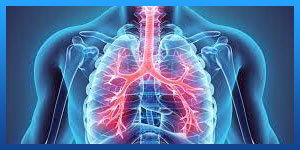Early Signs of Covid 19
Symptoms of covid-19, day by day
Doctors and scientists are learning new things about this virus every day. So far, we know that COVID-19 may not cause any symptoms for some people. You may carry the virus for 2 days or up to 2 weeks before you develop symptoms.
Some common symptoms that have been specifically linked to COVID-19 include:
. shortness of breath
. a cough that gets more severe over time
. fever
. chills
. fatigue
Read more about : Early Signs of Covid Delta
Less common symptoms of COVID-19 include:
. repeated shaking with chills
. sore throat
. headache
. muscle aches and pains
. loss of taste or smell
. a stuffy or runny nose
. gastrointestinal symptoms such as diarrhea, nausea, and vomiting
. discoloration of fingers or toes
. pink eye
. rash
However, individuals with COVID-19 may have some, all, or none of the above symptoms. For instance, fever is often referred to as the most common symptom of COVID-19. However, a July 2020 study of 213 people with mild disease found that only 11.6 percent of them had experienced fever.

Read more about : Mucormycosis
COVID-19 Symptoms Usually Show Up in This Order
Mild COVID-19
Most people with COVID-19 will only have a mild case.
According to the National Institute of Health’s COVID-19 treatment guidelines, people are characterized as having a mild case if they:
. have any of the typical symptoms of COVID-19 (such as cough, fatigue, or loss of taste or smell)
. don’t have shortness of breath or abnormal chest imaging
Mild cases can still have long-lasting effects. People who experience symptoms months after first contracting the virus — and after the virus is no longer detectable in their body — are referred to as long haulers.
According to a February 2021 research letter in JAMA Network Open, approximately one-third of people with COVID-19 had persistent symptoms as long as 9 months after infection.
A December 2020 literature review estimated that 17 percent of people with COVID-19 are actually asymptomatic. This means they have no symptoms at all.
Twenty percent of people who have COVID-19 and require any sort of senior care services are asymptomatic. The authors evaluated data from 13 studies to come up with their estimates.
A January 2021 literature review looked at 61 studies and reports about COVID-19. The researchers concluded that:
. At least one-third of all cases are asymptomatic.
. Almost 75 percent of people who are asymptomatic when they receive a positive polymerase chain reaction (PCR) test result will remain asymptomatic. PCR tests include nasal swab tests.
Severe COVID-19
Call emergency medical services if you have or someone you care for has any of the following symptoms:
. trouble breathing
. blue lips or a blue face
. persistent pain or pressure in the chest
. confusion
. excessive drowsiness
The Centers for Disease Control and Prevention (CDC) is still investigating the full range of symptoms.
Source:
https://www.healthline.com/health/coronavirus-covid-19#symptoms


